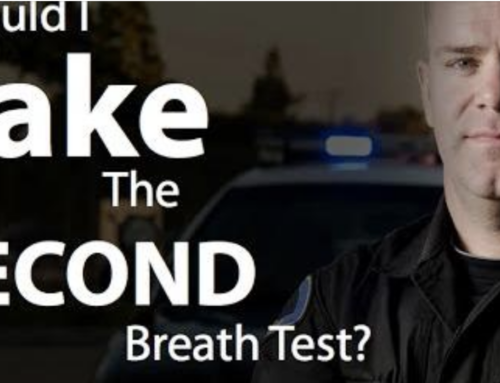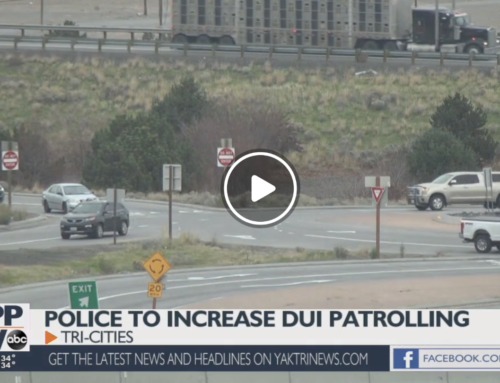As a DUI defense attorney here in the Tri-Cities, I often get questions about this area of law. Here are short answers to frequently asked questions about driving under the influence. Alex wrote this article for the https://www.tricitiesbusinessnews.com
See the published article here or below:
-
What is the “legal limit” for a DUI?
When I’m asked this question, it is usually pertaining to alcohol-based DUIs. The legal limit for an alcohol-based DUI in Washington is 0.08 g/210L of breath. However, you do not have to be over the legal limit to be arrested, charged and convicted of DUI. A law enforcement officer can place you under arrest if he or she believes that your ability to drive is impaired by the alcohol that you have consumed. In addition, if a prosecutor can prove to a jury that your ability to drive was affected by the alcohol you have consumed, you can be convicted of DUI regardless of the result of your breath sample.
With the legalization of marijuana a few years ago, our legislation was forced to adopt a legal limit for marijuana. The limit is 5 ng/mL of active THC. This does not include the residual THC-carboxy that remains in your system for several weeks after consuming marijuana. In Washington, marijuana can only be tested through a blood sample. A marijuana-based DUI is prosecuted similarly to an alcohol-based DUI in the sense that it can be prosecuted by showing you are over the legal limit or that your ability to drive was affected by the marijuana you consumed.
It is worth noting that DUIs are not limited to alcohol or marijuana. You could be charged with DUI after consuming illicit drugs, abusing prescription drugs or even consuming prescription drugs within levels as prescribed by a doctor. The bottom line is if your ability to drive is affected — regardless of the type and amount of substance consumed — you could find yourself charged with a DUI.
- What will a DUI cost?
DUIs are expensive! Generally, the fines and costs imposed for a first-offense DUI will be anywhere between $1,250 and $2,500, but the maximum fine that could be imposed is $5,000. The total amount is usually dependent upon the law enforcement agency that arrested you and the particular facts of the case. Costs seem to come at you from every angle, including Department of Licensing fees, ignition interlock fees, increased insurance rates and alcohol classes. One of the major costs is the lawyer that you hire, which can be several thousands of dollars. It is not unusual for a first offense DUI to cost a total of $10,000.
- Will my license by suspended?
If convicted of a DUI, yes. Depending on the number of times you have been convicted of DUI, a license suspension can vary from 90 days to several years. Even if your DUI case is dismissed or amended to another charge in court, the Department of Licensing can still suspend your license. I always tell people that when they’re charged with DUI, they’ll have two cases — a criminal case and a DOL case.
It is critical to address both matters.
- Should I blow into the breath machine?
There are two types of “breath samples” that may be requested during a DUI investigation. The first is a roadside breath test, or preliminary breath test, called the PBT. The second is an evidentiary breath test done at a jail or police station, the blood alcohol concentration, or BAC, test. The PBT test is completely voluntary and cannot be used as evidence of guilt. It is primarily used by the officer for probable cause to arrest. Therefore, I usually tell people to decline taking that test.
The BAC test is very different. There are exceptions to every rule, but generally it is best to provide a breath sample at the jail after you are arrested. The reasons for this are two-fold. First, if you refuse to take a breath test, the law enforcement officer has the ability to call a judge, get a telephonic search warrant, and take you to the hospital to draw your blood. Since refusing the BAC test does not prevent law enforcement from obtaining a sample, it is usually more beneficial to blow into the BAC machine upon arrest. Second, your jail sentence, fines and costs, and license suspension are increased upon refusal of the BAC.
- Should I do the field sobriety tests?
Most people don’t know that field sobriety tests (roadside agility tests) are completely voluntary. I have always advised people to decline taking these tests. They are often administered late at night, on the side of a busy road or highway, and many times, in clothing that is not suitable for agility testing. In addition, most people become extremely nervous when asked to step out of the car by an officer and may not perform at their best. This is almost always a recipe for disaster. To make things worse, scoring conducted on the tests doesn’t take into account your age, weight, health conditions, or natural coordination. In short, it is unlikely that taking these tests will benefit your case.
Everyone feels a certain level of dread when they see the flashing lights of a police car behind them. If you are stopped after drinking alcohol or consuming marijuana, illegal substances, or even prescription drugs, you could find yourself under arrest and prosecuted for DUI. If this happens to you, the best thing to do is hire an attorney who specializes in DUI defense. DUIs are legally and scientifically complex. Being charged with a DUI can significantly impact your livelihood, reputation and career. Therefore, the best choice you can make is hiring an attorney who is well versed in the complexities of DUI defense. The right attorney can make all the difference.
Alex Johnson, a partner/owner of the Johnson & Johnson Law Firm in Kennewick, has been a lawyer for 12 years and focuses his practice on representing people charged with driving under the influence.




